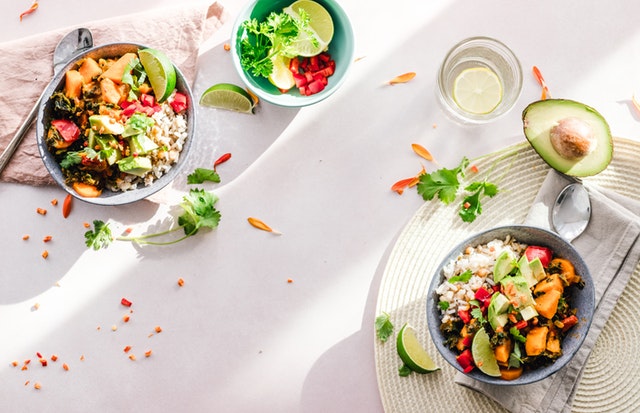Appointment Request
You can use this form to request an appointment.
Once received, we will check the form details and confirm appointment times with you.
We cannot guarantee an appointment without confirmation.
New Patient Registration
If you would like to register as a patient with YourGP, please fill in your details below and one of our team will be in touch.
Top tips for following a plant-based diet

Whether it’s for ethical, environmental or health reasons, an ever increasing number of people are deciding to go vegan. Supermarkets and restaurants have been quick to react, with animal-free products now widely available, making it easier than ever to embrace a plant-based diet. However, as with any major diet change, it’s essential you seek the advice of a healthcare professional to ensure you’re getting all the essential vitamins and minerals you need to stay healthy. To keep you on the right track, we’ve listed a few key tips for those considering embracing veganism.
Up your iron intake
Iron can be found in two forms in foods – ‘heme’, which is found only in animal products, and ‘non-heme’, which is found in plants. Those previously accustomed to an iron-rich diet containing red meat may experience lower energy levels if their non-heme iron intake isn’t increased. In fact, some may even experience shortness of breath, headaches, irritability, dizziness and anemia. To avoid this, be sure to include more nuts, seeds, lentils and leafy greens in your diet.
Don’t cut out the calcium
Think calcium – think milk, yoghurt and cheese – all of which are traditionally made using animal-based products of course. However, it is possible to obtain your daily recommended intake of calcium via other means, such as cereals, bread, pulses, broccoli, sesame seeds and tahini – all of which will contribute to good bone health.
Vital vitamins
A lack of vitamin B-12 can have a big effect on energy levels, and long-term deficiency can lead to serious issues such as anemia, reduced growth and healing, and even certain neurological disorders. So it’s essential these levels are maintained by including things such as such as fortified plant-based milk, fortified cereals and nutritional yeast in your diet.
No need to omit omega 3
Omega-3 fatty acids are essential for maintaining good health; lowering blood pressure and helping to prevent heart disease for example. The most common source among non-vegans is fish oils, however, one alternative is to opt for algae oils.
Power up with protein
Protein is essential for the maintenance of healthy bones, muscles, cartilage, skin, and blood. Soy beans and quinoa are complete proteins, making them a good option for vegans. Adding peanuts and chickpeas to meals is also a quick and easy way to increase your protein intake.
Whether you’re just about to switch to a plant-based diet and you’d like some advice from a medical professional at YourGP, or you’ve been vegan for a while and would like to take a Vitamin Deficiency Test to check your levels, simply email reception@your.gp or call 0131 225 5656 and book an appointment.
When Lyn booked me with Dr McFarlane and said ‘what he doesn’t know about sexual health isn’t worth knowing’ she was right. Thorough assessment, quick test and immediate treatment all in a relaxed, professional manner – Excellent!
